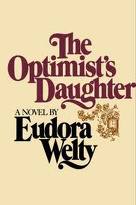 It is once again, dear readers, the time of year when ESPN neglects all other sports to show you basketball replays, and people can think of nothing other than their brackets and their Cinderella team. As a lapsed fan of basketball, especially on the collegiate level, I confess that the tournament really doesn’t excite me very much. If I hadn’t researched it for this blog, that would probably have remained the case. After looking it over in writing this post, I gained a new respect for March Madness, not just as an event, but as a cultural ritual with a connection to history.
It is once again, dear readers, the time of year when ESPN neglects all other sports to show you basketball replays, and people can think of nothing other than their brackets and their Cinderella team. As a lapsed fan of basketball, especially on the collegiate level, I confess that the tournament really doesn’t excite me very much. If I hadn’t researched it for this blog, that would probably have remained the case. After looking it over in writing this post, I gained a new respect for March Madness, not just as an event, but as a cultural ritual with a connection to history.
The beauty of sports is that they connect people from different eras and geographical locations. Modern sports are geared more towards exciting displays of athletic ability and physicality, but the more ancient ones were a product of practicality. Sports such as boxing, wrestling, fencing, kendo, archery, target shooting, and jousting, amidst a horde of others, served in both idealistic and pragmatic capacities. All of them began life as martial arts, designed to make someone more formidable in combat, whether it be at Agincourt or in a back alley. The evolution from national longbow training to the modern basketball championship was not simple, but it is explicable.
One of the most difficult aspects of training is motivation. When a population turns a violent art into a sport, they provide one of the oldest forms of motivation known to man: competition. The simple notion of competition is profound in its reach. Human beings love to compete, to show that they are the best. As a result of this, sports have grown far beyond their initial role as a motivational tool. Competition is an important thing, nationally and internationally. The Olympics is (largely) a show of goodwill and trust in the international community, and March Madness is an opportunity for old traditions and rivalries to carry on in the United States in a healthy way.
In pondering the idea of competition, I turned to famous examples in literature. William Faulkner understood the instinctive urge to compete better than most, and his writing reflects that. In Flags in the Dust, he writes of the Sartoris family following World War I, specifically Young Bayard. The heir to the family, he went to war with his twin brother and came back alone. Young Bayard proceeds to drink excessively, drive recklessly, and generally try his hand at any highly dangerous activity he can. He was plagued not just by survivor’s guilt, but by an unshakeable feeling that he was not truly a man unless he died in action, which he did while test-piloting a plane. That ideal was a product of his proud upbringing, and is indicative of Faulkner’s argument. Competition, as Faulkner views it, is good and proper, but it cannot be allowed to overcome everything else, or it will extinguish our species. He wrote many books about the flagging, destructive nature of honor in the dying South, and the effects it has upon its misguided disciples. I think he would be very receptive to the idea of sports as a regional, national, and international method of competition, one which doesn’t end in self-destruction.
So in retrospect, I have become a fan of March Madness, and I hope it continues to promote competition and greatness between athletes and fans for generations to come. What do you think of that, dear reader? Can you come up with any other famous examples of competition in literature?






 1. A Farewell to Arms, Ernest Hemingway
1. A Farewell to Arms, Ernest Hemingway 2. All the King’s Men, Robert Penn Warren
2. All the King’s Men, Robert Penn Warren 3. The Optimist’s Daughter, Eudora Welty
3. The Optimist’s Daughter, Eudora Welty 4. The Sound and the Fury, William Faulkner
4. The Sound and the Fury, William Faulkner I’m sure most male readers are rolling their eyes at the inclusion of Austen on this list. As a woman, my affinity for Ms. Austen is probably coded into my DNA. Nevertheless, Persuasion is arguably the author’s best and often most under-appreciated work. This novel is darker than her previous books and represents a shift towards Romantic style and sensibilities. Austen is a master of dialogue and character development. If you can’t stand the love story, at least read and admire Austen for her wit, writing, and satire.
I’m sure most male readers are rolling their eyes at the inclusion of Austen on this list. As a woman, my affinity for Ms. Austen is probably coded into my DNA. Nevertheless, Persuasion is arguably the author’s best and often most under-appreciated work. This novel is darker than her previous books and represents a shift towards Romantic style and sensibilities. Austen is a master of dialogue and character development. If you can’t stand the love story, at least read and admire Austen for her wit, writing, and satire.
